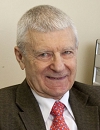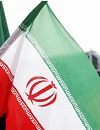 |
||
|
Russia Tightens Defense Contract Standards RIA Novosti, PUBLISHED May 16, 2012 The Russian parliament approved on Wednesday in the first reading a government sponsored bill penalizing officials for failure to place state defense contracts on time. Topics: Russia Other news: Bulgaria registered project company for Kozloduy-7 It is fully belonged now to the Kozloduy NPP. Bushehr to Begin Operations in 2012 - Rosatom We want to put it into commercial production at the end of this year. Japan Starts Work to Shut Down Last Reactor The company will stop power production at the Tomari nuclear power plant's third reactor. |
Hero of the day 
Jacques Repussard: knowledge, independence, proximity They told me: "Mr Repussard, we're not used to responding to anti-nuclear organisations". To which I replied: "We will not reveal any state or trade secrets, but we will not leave them without any answer". INTERVIEW
Georgy Toshinsky OPINION
Dmitry Kosyrev |

